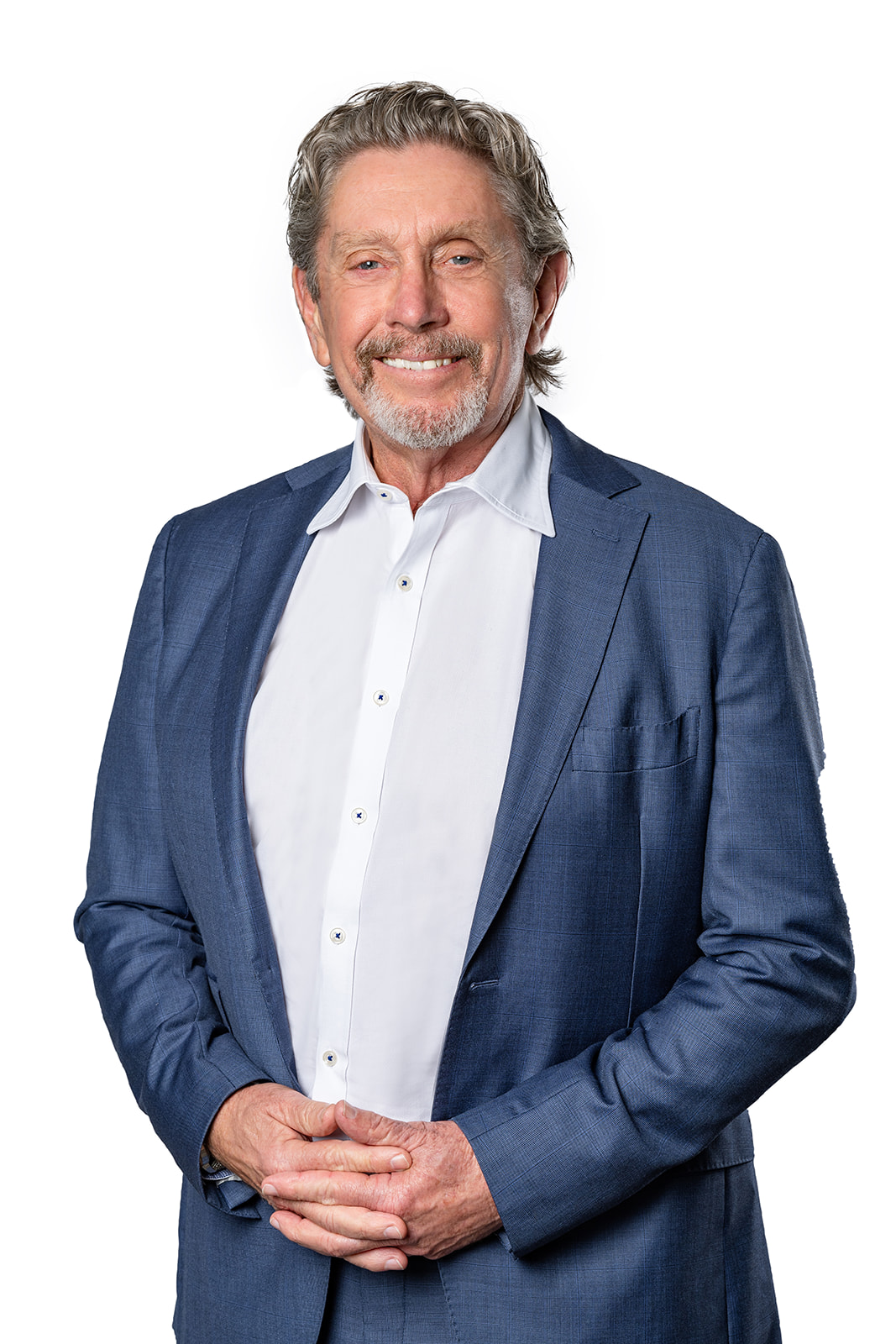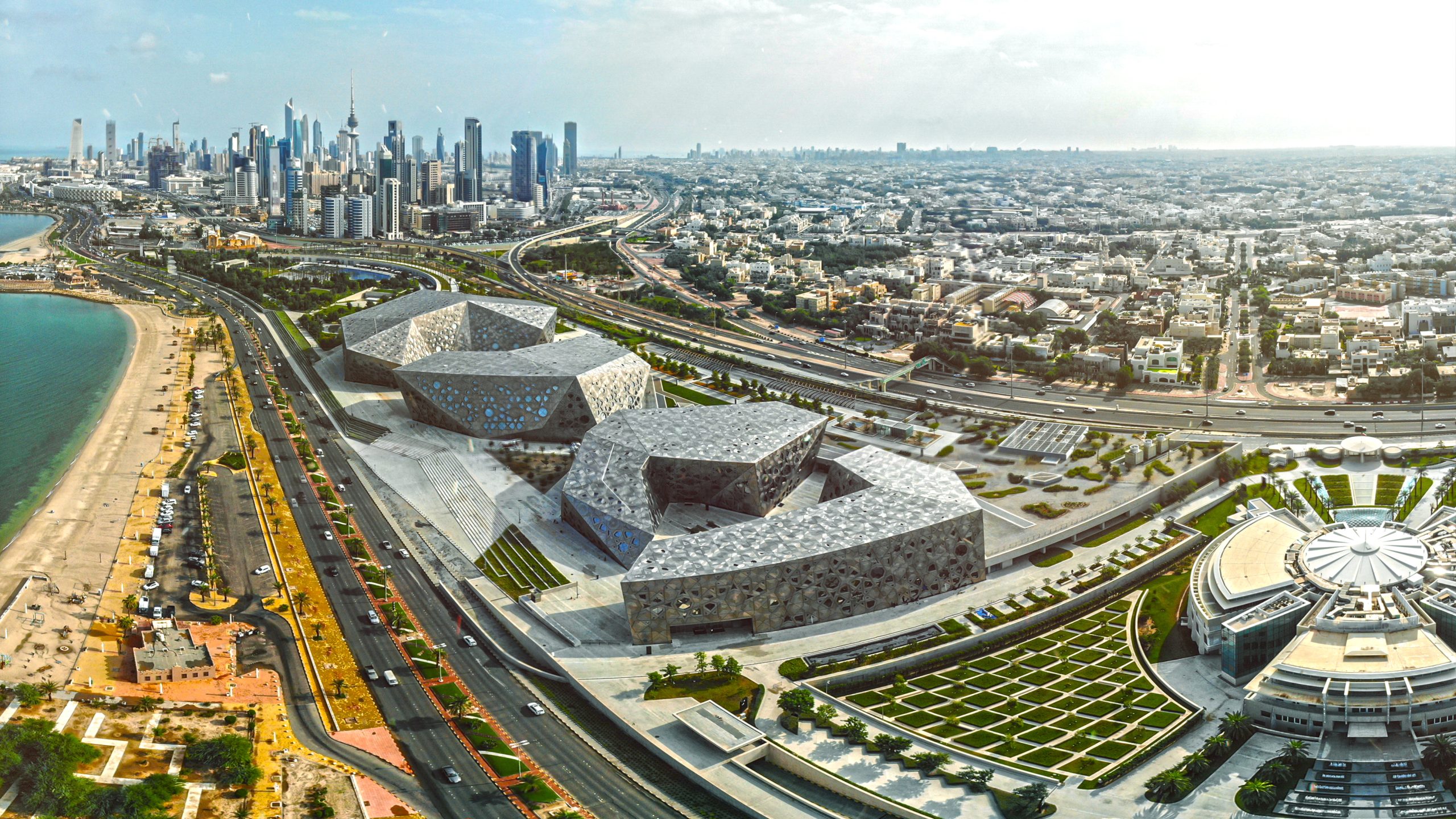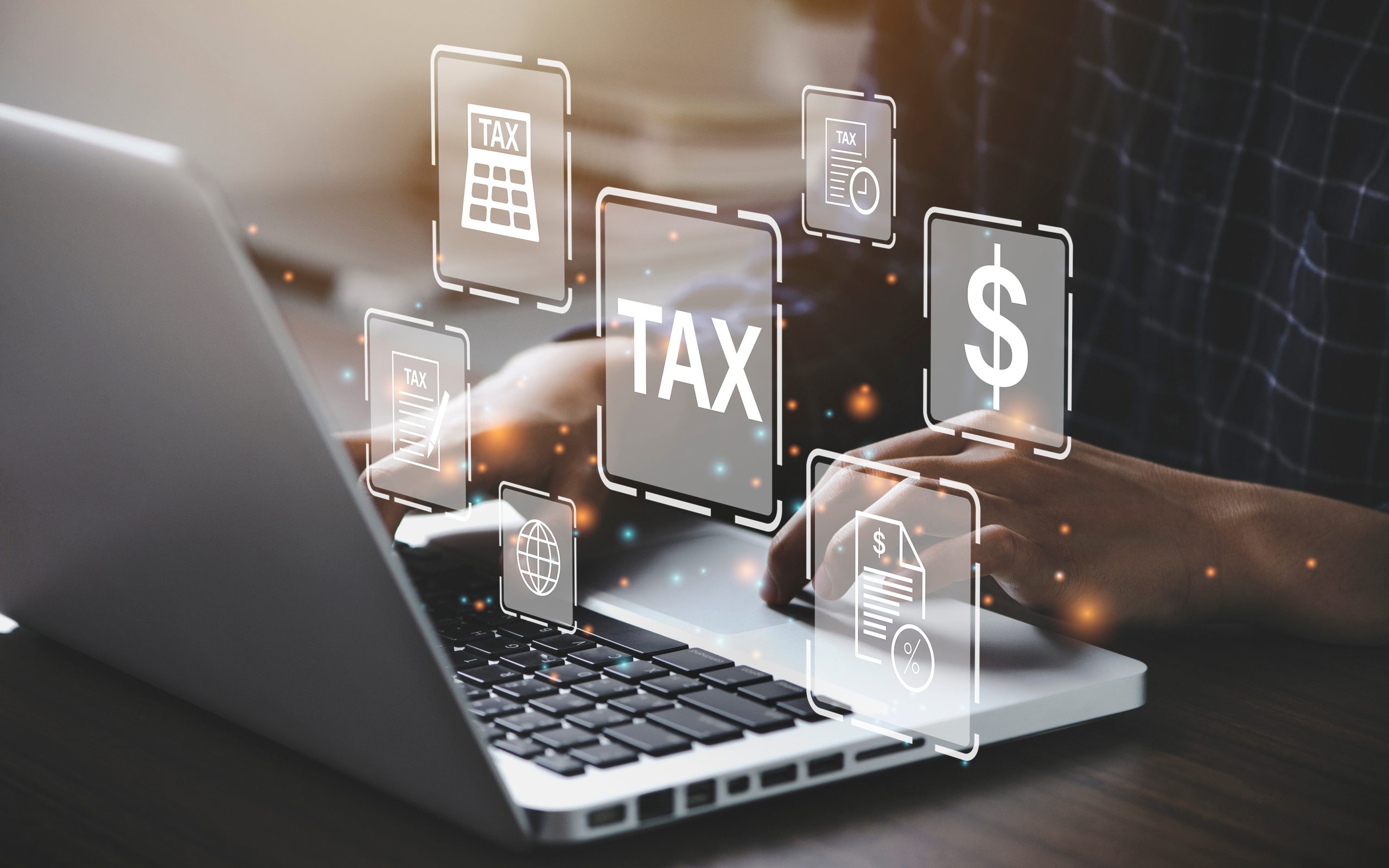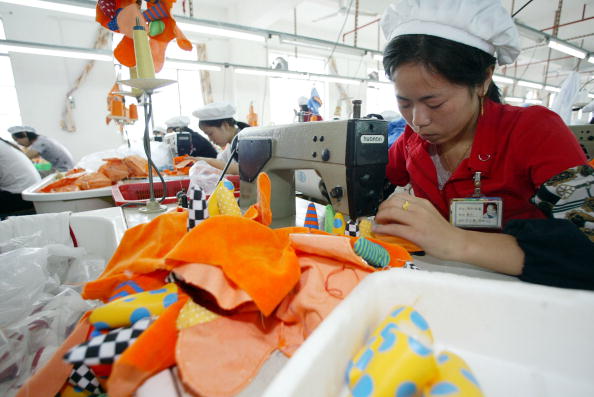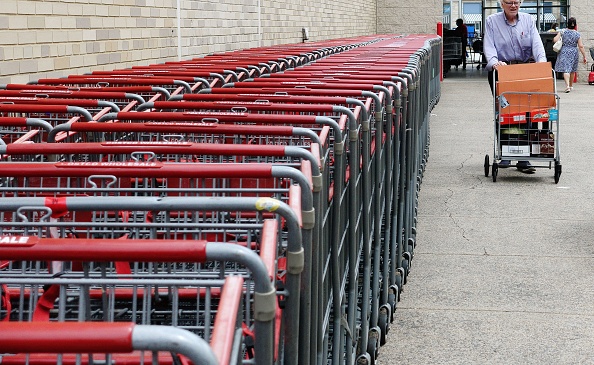Efforts to Rein In AI Tap Lesson From Social Media: Don’t Wait Until It’s Too Late
Activists and officials race to shape rules and public understanding of new artificial intelligence tools
Social media was more than a decade old before efforts to curb its ill effects began in earnest. With artificial intelligence, lawmakers, activists and executives aren’t waiting that long.
Over the past several months, award-winning scientists, White House officials and tech CEOs have called for guardrails around generative AI tools such as ChatGPT—the chatbot launched last year by Microsoft-backed startup OpenAI. Among those at the table are many veterans of the continuing battle to make social media safer.
Those advocates view the AI debate as a fresh chance to influence how companies make and market their products and to shape public expectations of the technology. They aim to move faster to shape the AI landscape and learn from errors in the fight over social media.
“We missed the window on social media,” said Jim Steyer, chief executive of Common Sense Media, a child internet-safety organisation that has for years criticised social-media platforms over issues including privacy and harmful content. “It was late—very late—and the ground rules had already been set and industry just did whatever it wanted to do.”
Activists and executives alike are pushing out a range of projects and proposals to shape understanding and regulation to address issues including AI’s potential for manipulation, misinformation and bias.
Common Sense is developing an independent AI ratings and reviews system that will assess AI products such as ChatGPT on their handling of private data, suitability for children and other factors. The nonprofit plans to launch the system this fall and spend between $5 million and $10 million a year on top of its $25 million budget to fund the project.
Other internet advocacy groups including the Mozilla Foundation are also building their own open-source AI tools and investing in startups that say they are building responsible AI systems. Some firms initially focused on social media are now trying to sell services to AI companies to help their chatbots avoid churning out misinformation and other harmful content.
Tech companies are racing to influence regulation, discussing it with global governments that are both wary of AI and eager to capitalise on its opportunities. In early May, President Biden met with the chief executives of companies including OpenAI, Microsoft and Google at the White House. OpenAI CEO Sam Altman has spent weeks meeting with lawmakers and other leaders globally to discuss AI’s risks and his company’s idea of safe regulation.
Altman and Microsoft President Brad Smith have both argued for a new regulatory agency that would license large AI systems. Tesla CEO Elon Musk, who on Wednesday announced the official launch of his new AI startup, said in May that the government should convene an independent oversight committee, potentially including industry executives, to create rules that ensure AI is developed safely.
The Federal Trade Commission also is taking a hard look at AI. It is investigating whether OpenAI has “engaged in unfair or deceptive practices” stemming from false information published by ChatGPT, according to a civil subpoena made public this past week. Altman said OpenAI is confident that it follows the law and “of course we will work with the FTC.”
Looming large over all this activity is the growing feeling among many activists and lawmakers that years of efforts to regulate or otherwise change social-media companies including Facebook parent Meta Platforms, Twitter and TikTok were unsatisfactory. Facebook was founded in 2004 and Twitter in 2006, but widespread discussion about regulation didn’t really take off until after discoveries of Russian interference and other issues in the 2016 U.S. election.
“Congress failed to meet the moment on social media,” Democratic Sen. Richard Blumenthal said during a congressional hearing on AI in May. “Now we have the obligation to do it on AI before the threats and the risks become real.”
Though social-media executives in recent years called for more regulation, no new U.S. federal laws have been set that require companies to protect users’ privacy and data or that update the nearly three-decade-old rules for how platforms police content. In part that is because of disagreements among lawmakers over whether companies should do more to moderate what is said on their platforms or whether they already have overstepped into stifling free speech.
Some of the activists who are veterans of those battles say two major lessons from this era are that the companies can’t be trusted to self-regulate and that the federal government is too gridlocked to pass meaningful legislation. “There’s a massive void,” Steyer of Common Sense Media said.
Yet he and others say they are encouraged by the willingness of AI companies to discuss major issues.
“We’re seeing some of the people from trust and safety teams from social media are now at AI companies,” said L. Gordon Crovitz, co-founder of NewsGuard, a company that tracks and rates news sites. Crovitz, former publisher of The Wall Street Journal, says these people seem much more empowered in their current roles. “The body language is ‘we’ve been freed.’”
Large language models such as GPT-4 are trained on anything that can be scraped from the internet, but the data contain large chunks of hate speech, misinformation and other harmful content. So these models are further refined after their initial training to weed out some of that bad content in a process called fine-tuning.
NewsGuard has been talking to AI companies about licensing its data—which Crovitz calls a “catalog of all the important false narratives that are out there”—for fine-tuning and to bolster AI models’ guardrails against producing just those types of misinformation and false narratives.
Ravi Iyer, a former product manager for Meta, is now at the University of Southern California’s Marshall School of Business and developing a poll that tracks how people experience AI systems. He hopes the poll will influence how AI companies design and deploy their products.
“We need to know that’s a choice platforms can make and reward them for not making the wrong choices,” Iyer said.
The Mozilla Foundation, a nonprofit that builds the Firefox internet browser, said it is building open-sourced models as alternatives to large private AI models. “We need to build alternatives and not just advocate for them,” Mark Surman, Mozilla’s president, said.
Steyer described the AI ratings system being built at Common Sense as the most ambitious in the nonprofit’s history. Tracy Pizzo Frey, a consultant who previously worked for Google and is helping craft the system, said there is no set way to evaluate the safety of AI tools.
So far, Common Sense is looking at seven factors, including how transparent companies are about what their systems can do and where they still have shortcomings. The nonprofit may factor in how much information companies provide about their training data, which companies including OpenAI view as competitive secrets.
Frey said Common Sense won’t ask for proprietary data but needs information that helps parents and educators make informed decisions about the use of AI. “There are no rules around what transparency looks like,” Frey said.
 Copyright 2020, Dow Jones & Company, Inc. All Rights Reserved Worldwide. LEARN MORE
Copyright 2020, Dow Jones & Company, Inc. All Rights Reserved Worldwide. LEARN MORE
Chris Dixon, a partner who led the charge, says he has a ‘very long-term horizon’
Americans now think they need at least $1.25 million for retirement, a 20% increase from a year ago, according to a survey by Northwestern Mutual
This agreement aims to foster the development of robust partnerships between the communities of both regions.
The Australian Chamber of Commerce and Industry has recently signed a Memorandum of Understanding (MoU) with the Dubai Chambers, marking a significant step towards enhancing cooperation and strengthening economic and trade relations between Dubai and Australia. This strategic agreement aims to foster the development of robust partnerships between the business communities in both regions.
In today’s interview, we will delve with Mr. Lyall Gorman, Vice President of the Australian Chamber of Commerce and Industry, into the objectives and anticipated impacts of this MoU, explore the key initiatives and projects that will arise from this collaboration, and discuss the potential challenges and strategies for overcoming them.
We will also look into how this agreement aligns with the broader strategic goals of the Australian Chamber of Commerce and Industry and the future of trade relations between Australia and the Middle East.
Can you give us a brief overview of the MoU signed with the Dubai Chamber? What are the main objectives?
The MoU we signed is designed for the two chambers to collaborate for mutual benefit and interest, focusing on business-to-business interactions. We are currently exploring opportunities around delegations, information sharing, trade, commerce, and e-commerce. The main goal is to bring businesses together in a structured manner to share ideas and encourage positive outcomes.
This partnership aims to increase the understanding of each other’s economies, recognize opportunities in each other’s regions, and work together to create mutual benefits. By doing that, we hope to enhance the economic ties between Dubai and Australia, leveraging each other’s strengths to create a more dynamic and prosperous business environment.
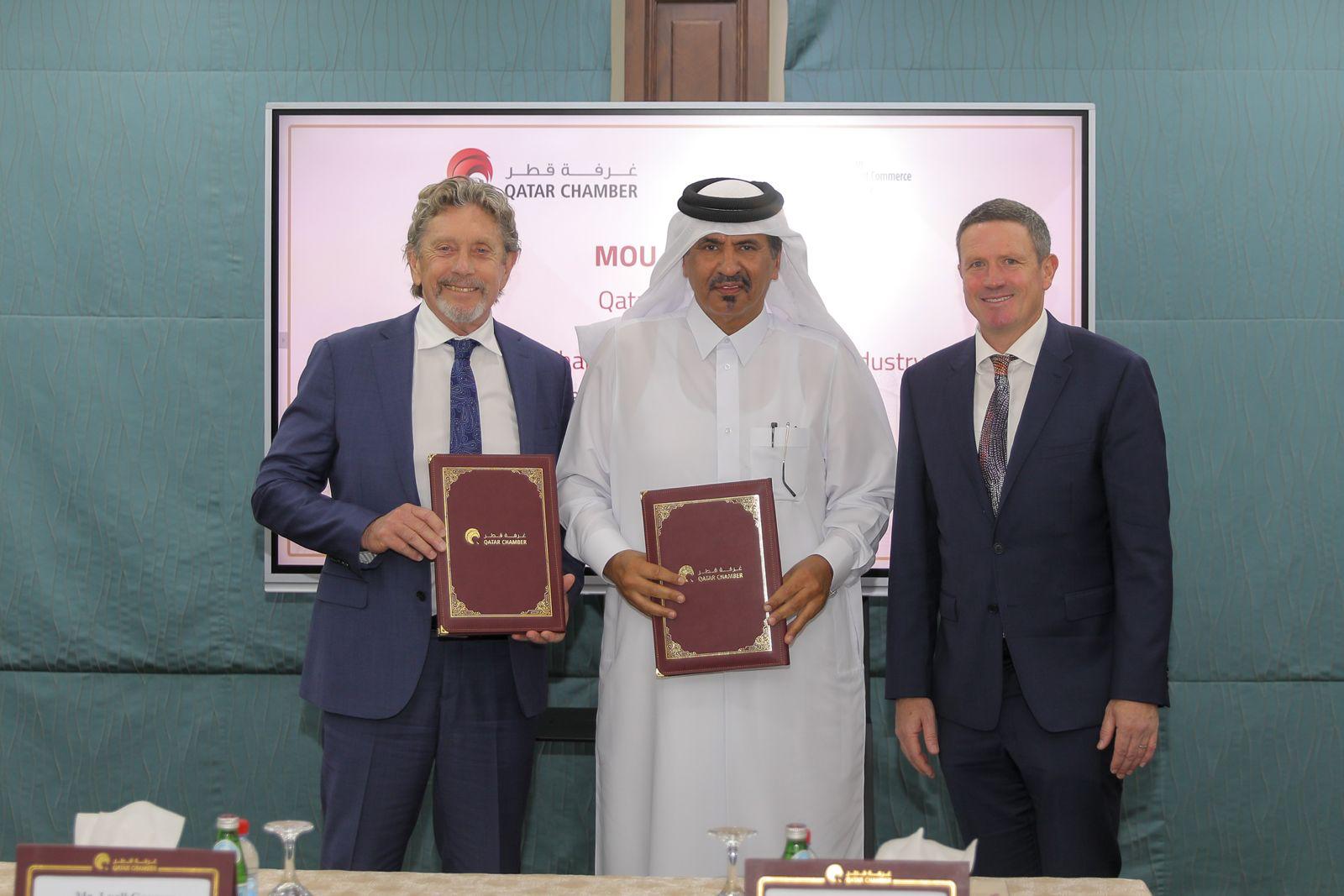
How do you see this MoU impacting trade relations between Australia and Dubai in the short and long term?
In the short term, we are expecting to generate a significant increase in awareness. By sharing information, data, and demographic insights, we will gain a better understanding of each other’s economic environments. This will help us identify existing opportunities for collaboration and potential mutual investment. From a trade perspective, we anticipate increased exports from Australia to Dubai and vice versa. This could include areas such as disruptive technology, medical research, education, construction, and agriculture—sectors that are currently emerging and critical.
In the long term, this enhanced understanding and collaboration will allow us to identify and capitalize on more opportunities. It’s about recognizing what’s happening in each other’s regions, understanding potential opportunities, and working together to create economic value. By fostering a deeper economic connection, we aim to create sustainable growth and mutual benefits over time.
What sectors or industries do you see as the primary beneficiaries of this partnership?
There are several mutual opportunities we aim to explore. Dubai has evolved incredibly over the last 20 years, achieving remarkable growth. However, there are still areas where further cooperation can drive growth. Some of the key initiatives will focus on sectors such as AI, digital disruptive technologies, smart technologies, financial services, education, construction, and advanced technologies.
Australia is highly regarded for its building codes and manufacturing capacity, especially in the construction sector. Additionally, I believe food security presents an interesting opportunity. As a major exporter of meat and other food products, Australia can contribute significantly to food security discussions, which is particularly relevant for Dubai.
Education is another area with significant potential for collaboration. By exploring these sectors, we aim to implement projects that not only address current challenges but also pave the way for sustainable development and innovative solutions in both regions.
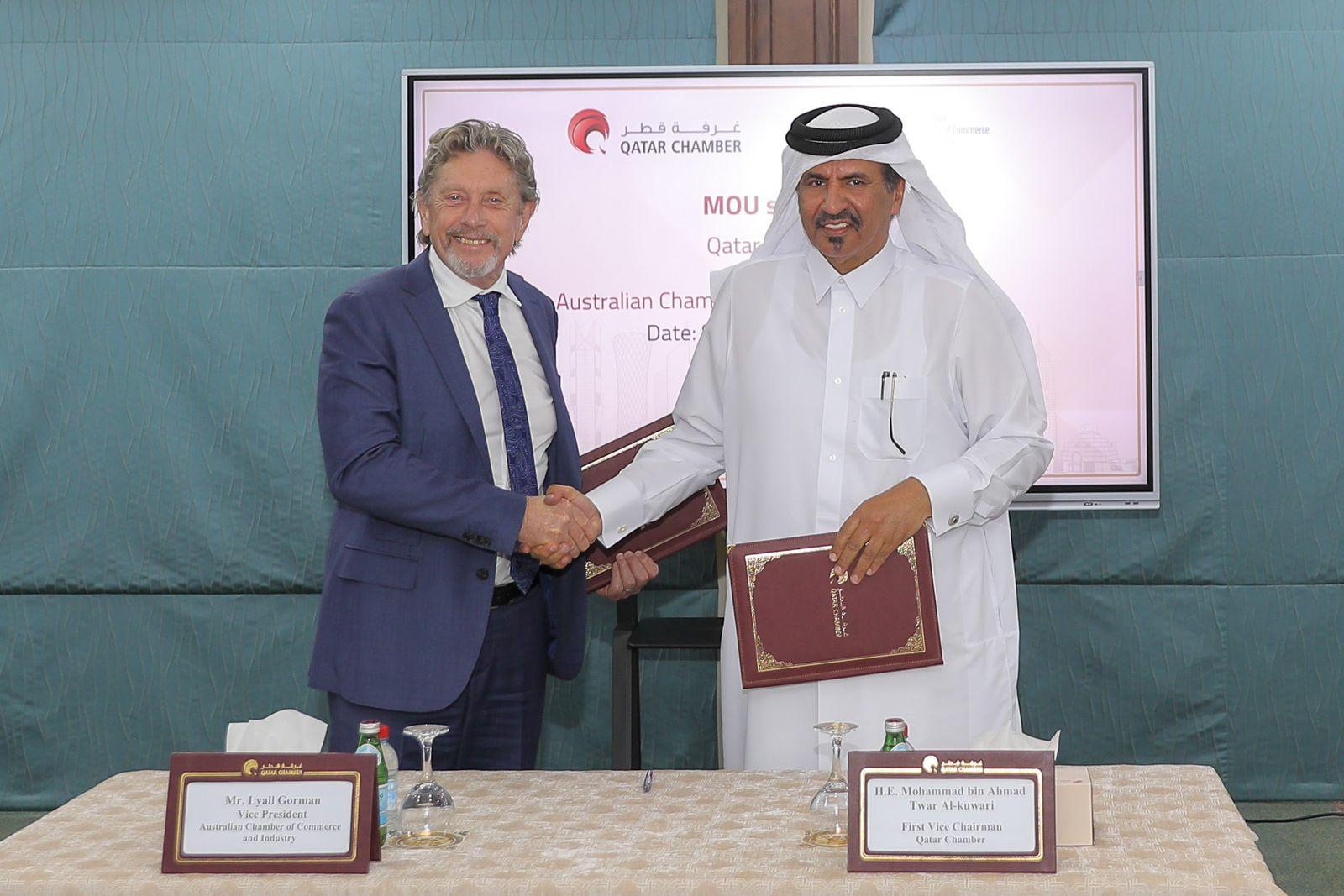
What challenges do you foresee in the implementation of this MoU, and how do you plan to address them?
The cultural differences can impact how business is conducted, and this requires careful navigation. To address this, we need open and transparent communication, fostering a spirit of collaboration and mutual respect. It’s essential to have a genuine desire to embrace each other’s cultural differences and find common ground.
Another potential challenge is ensuring that both sides fully understand and adapt to each other’s regulatory environments and market dynamics. Dubai has matured significantly into a global business and corporate hub, which helps, but there are still differences to consider.
By prioritizing understanding and respect, and committing to ongoing learning from each other, we can effectively manage these challenges. Working together in a considerate and respectful manner will be crucial in overcoming any hurdles that may arise during the implementation of this MoU.
How does this MoU align with ACCI’s broader strategic goals for international trade and collaboration?
This MoU aligns closely with ACCI’s broader strategic goals by emphasizing the importance of fostering and diversifying economic partnerships on a global basis. The current global geopolitical situation has underscored the need for diversifying our supply chains and business relationships.
From an Australian perspective, the lessons learned during the COVID-19 pandemic and the evolving geopolitical environment have further highlighted the necessity of expanding our economic partnerships.
The Middle East, including the GCC, are regions where Australia already has strong relationships that can be further strengthened. Therefore, by working together, collaborating, and sharing knowledge and forward-thinking ideas, this MoU will help us identify and shape initiatives that add value and align with our strategic goals for international trade and collaboration.
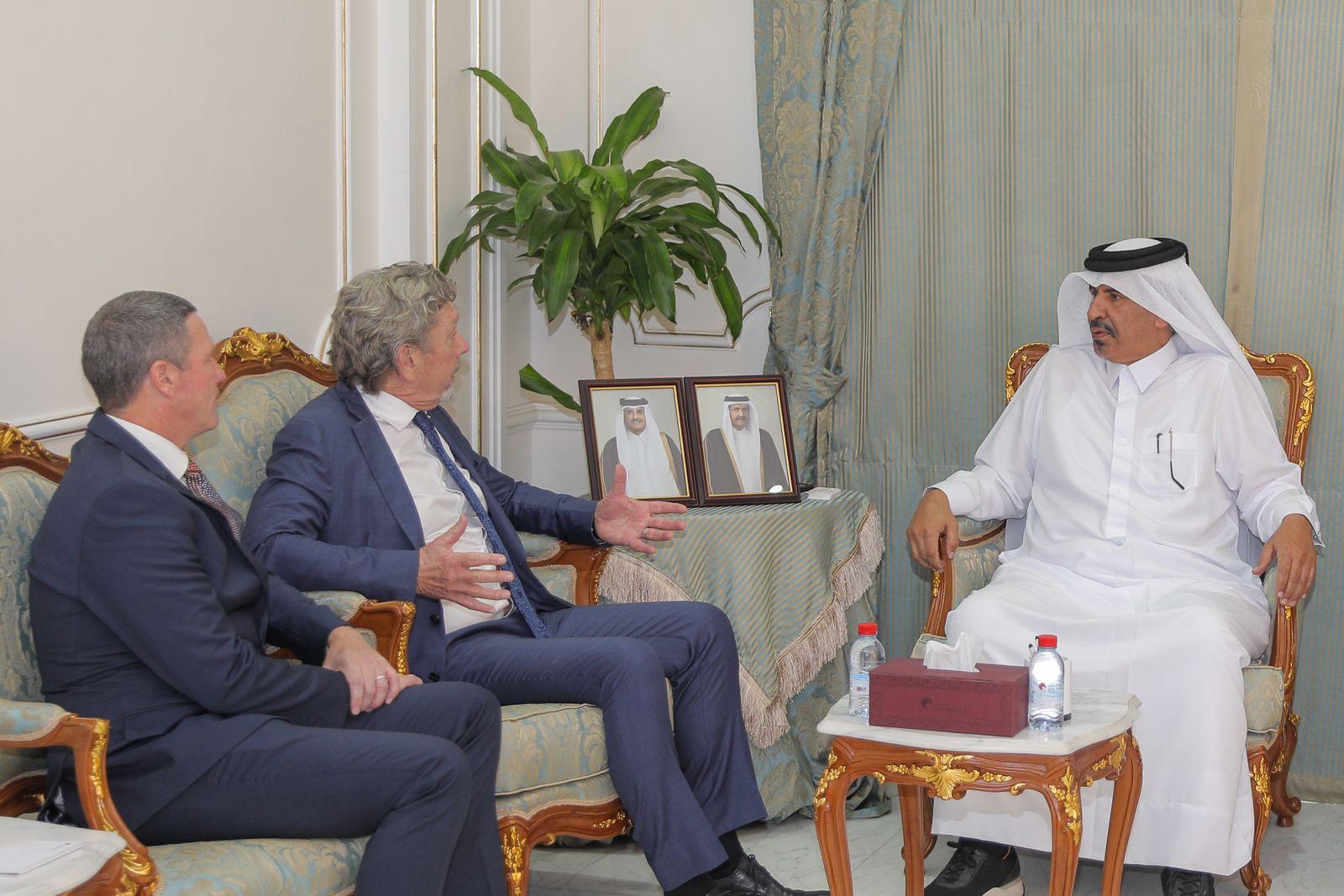
How do you envision the future of trade relations between Australia and the Middle
I believe it will become stronger, more robust, and more regular, all for mutual benefit. There is a genuine willingness between both regions to grow and expand this relationship through a partnership model rather than a transactional one. This approach involves setting short, medium, and long-term goals, fostering a thriving and enduring relationship.
We have already established a strong partnership with Dubai Chambers and maintain a good relationship with the Dubai International Chamber here in Australia, led by Sophia Demetriades Toftdahl. This aligns with our strategic goal of global diversification in business.
Additionally, we recently signed an MoU with the Qatar Chamber and are about to sign with the Abu Dhabi Chamber as well.
Engaging with Saudi Arabia also makes sense, as it is a significantly emerging country. The last few years under new leadership have brought clarity to its economic, political, and social future and a strong passion and drive to become a major player in the region and global stage
Chris Dixon, a partner who led the charge, says he has a ‘very long-term horizon’
Americans now think they need at least $1.25 million for retirement, a 20% increase from a year ago, according to a survey by Northwestern Mutual
















